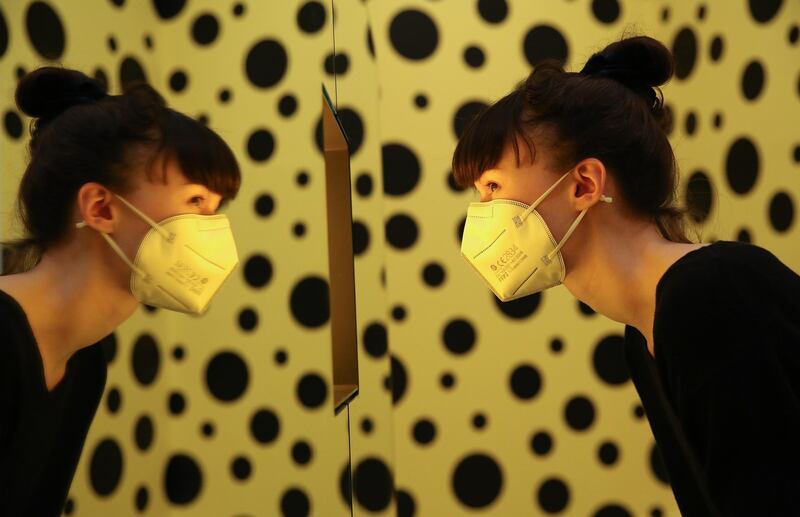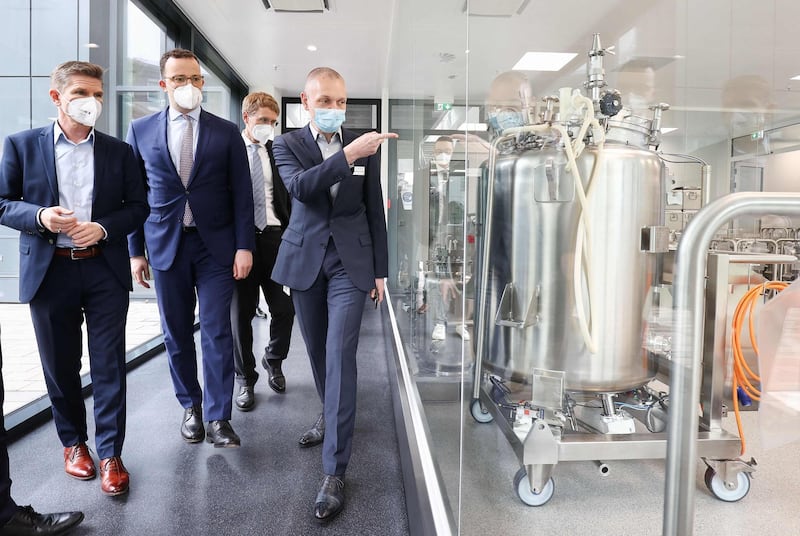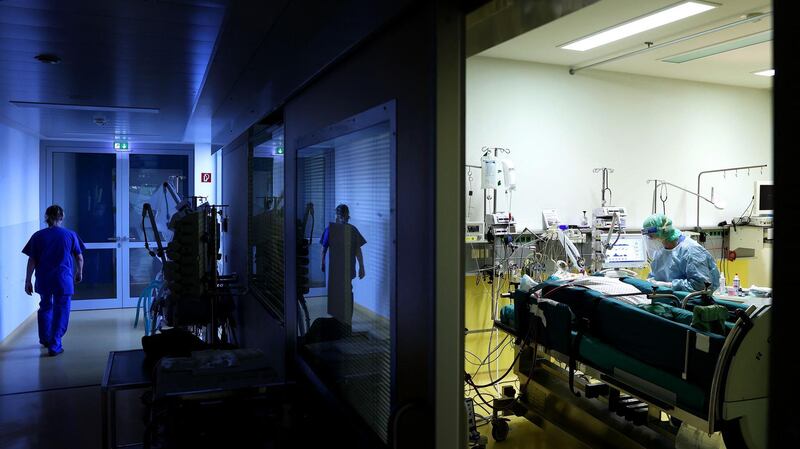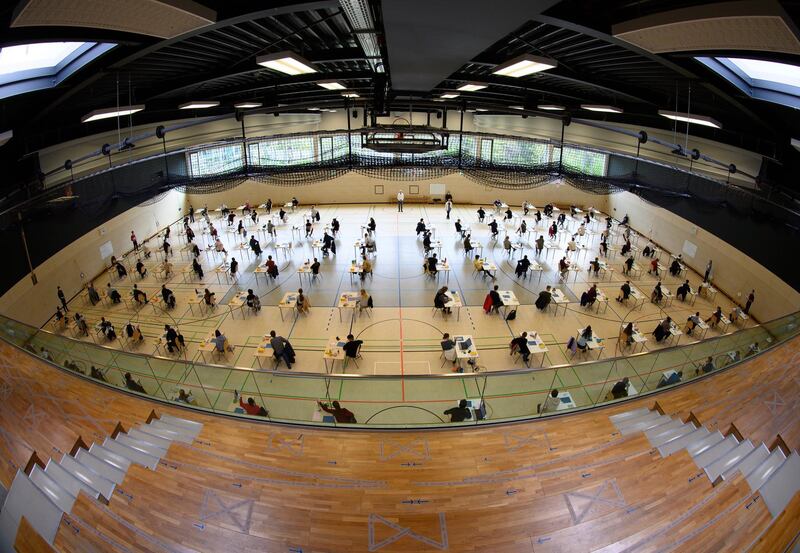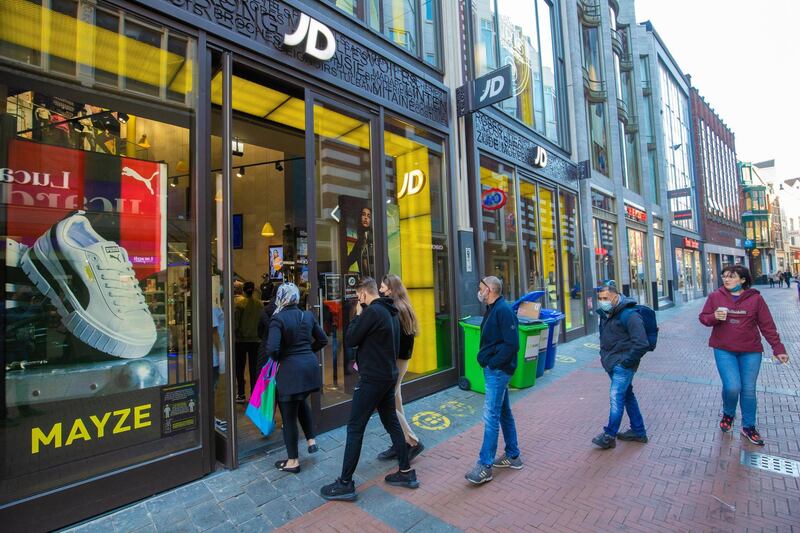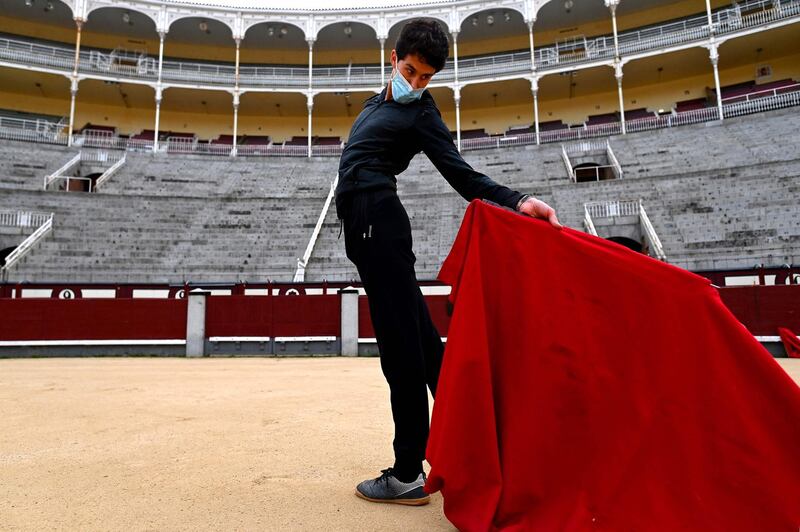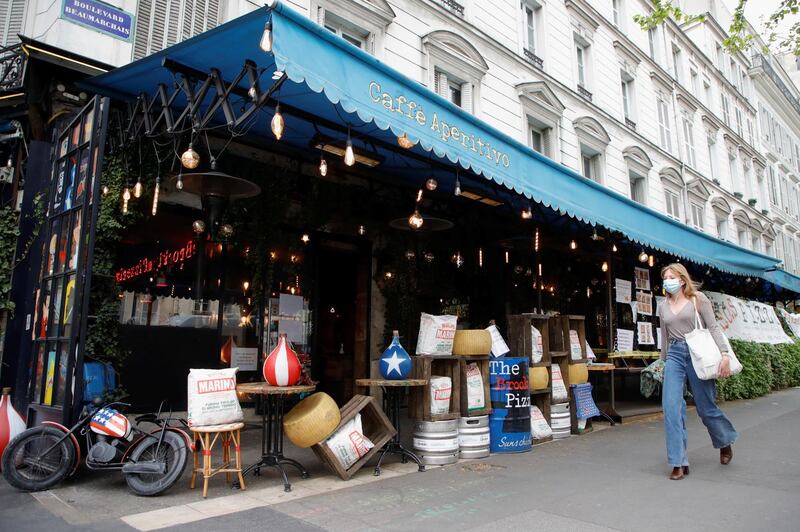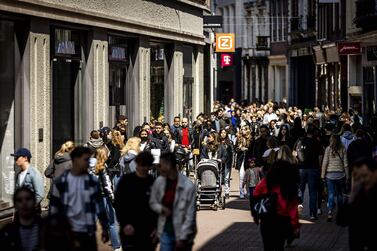The eurozone economy plunged into a double-dip recession in the first quarter of this year, as tighter coronavirus restrictions kept businesses closed and prevented consumers from spending.
Output from the 19-nation economic bloc contracted 0.6 per cent in the first three months of this year after a 0.7 per cent decline in the fourth quarter of 2020.
A recession occurs when an economy shrinks for two consecutive quarters, with output also declining 1.8 per cent compared to the same quarter in 2020.
Despite the setback, analysts said the eurozone was set firmly on a path to recovery as social restrictions ease and vaccination campaigns accelerate.
"The recession is a thing of the past. With progressive vaccinations and a seasonally slower spread of the coronavirus, infection figures should continue to fall in the coming weeks," said Christoph Weil, senior economist at Commerzbank.
The eurozone contraction came as the US economy continued to recover in the first three months of the year, growing 6.4 per cent on the quarter, up from the 4.3 per cent rise recorded in the fourth quarter of 2020, as output rebounded faster than expected.
Germany, the eurozone’s biggest economy, suffered an unexpectedly large contraction, with gross domestic product falling 1.7 per cent in the first quarter, leaving its economy almost 5 per cent smaller than its pre-pandemic levels.
While Germany’s decline helped to drag eurozone output down, France, the eurozone’s second biggest economy, recorded 0.4 per cent growth.
Euro area #GDP -0.6% in Q1 2021, -1.8% compared with Q1 2020: preliminary flash estimate from #Eurostat https://t.co/WrdMJzTebX pic.twitter.com/3vj8yAtepk
— EU_Eurostat (@EU_Eurostat) April 30, 2021
Eurozone GDP contracted 6.6 per cent in 2020, dropping by 3.8 per cent in the first quarter when the pandemic first took hold.
It crashed 11.6 per cent in the second quarter before rebounding 12 per cent in the third as reopening across the bloc revived economic activity.
However, new waves of Covid-19 at the end of last year forced another retreat leading to the double-dip recession.
Sam Miley, economist at the Centre for Economics and Business Research, said the eurozone economy was stifled by rising coronavirus case numbers in the first quarter of 2021, with the vaccination campaign criticised for delays and supply chain disruption.
"Though the rollout has recently accelerated, the proportion of the population to have received protection from Covid-19 has not yet reached sufficient levels in many member states, meaning restrictions are set to remain in place for some weeks yet," Mr Miley said.
The slower distribution and subsequent delays to the reopening of the economy leaves eurozone GDP on track for annual growth of 4 per cent in 2021, he said, in line with the ECB forecast.
The growth rate falls short of other major economies, with Cebr expecting growth of 7.1 per cent in the UK and 7 per cent in the US, reflecting the countries’ more successful vaccination programmes.
However, the eurozone economy is set for a sharp recovery in the second half of 2021, after economic sentiment surged in April as the region's vaccination programme finally gained momentum.
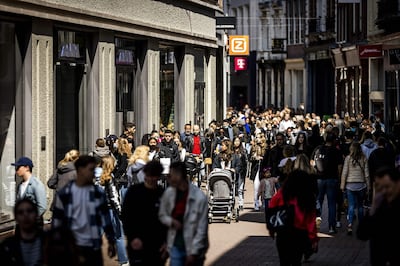
The European Commission's monthly sentiment survey for the 19 countries sharing the euro rose to 110.3 points in April from 100.9 in March, with European Central Bank president Christine Lagarde expecting rapid growth in the second half of the year when life returns to normal.
Ms Lagarde said vaccines provided the "light at the end of the tunnel", so there was no reason to alter ECB projections for 4 per cent growth over the full year.
Separately, eurozone inflation rose 0.6 per cent on the month in April, an increase of 1.6 per cent on the same month a year ago – the largest annual increase since April 2019.
The rise was mainly due to a 10.3 per cent increase in energy prices compared to 12 months ago, which offset the 0.4 per cent annual fall in the costs of unprocessed food.
“While eurozone inflation can largely be attributed to an extremely low comparative base in energy prices, inflation from other sources is also expected in the coming months," said Oliver Gatland, an economist at Cebr.
"The continued acceleration of the EU’s vaccination programme has increased optimism about Europe’s post-pandemic recovery. This, combined with the ECB’s accommodative monetary policy stance, is likely to lead to growing inflationary pressures later on this year."
Euro area #unemployment at 8.1% in March, EU at 7.3% https://t.co/Eaate4FkgD pic.twitter.com/CWaK443ujA
— EU_Eurostat (@EU_Eurostat) April 30, 2021
Meanwhile, eurozone unemployment fell in March to 8.1 per cent of the workforce, or 13.166 million people, from a downwardly revised 8.2 per cent in February or 13.375 million people.
More on the eurozone economy
ECB keeps policy unchanged as it waits for economic rebound
ECB's Christine Lagarde: 'Our hope is that 2021 is still the year of recovery'
